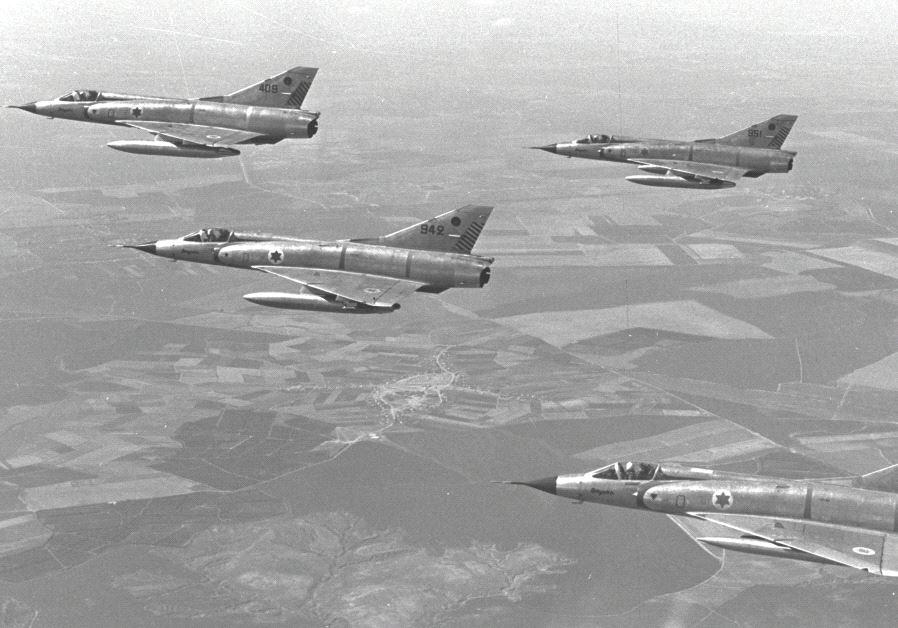Israel's alleged 1967 nuclear 'doomsday operation' plan to be revealed
Whether credible or not, the plans never came into effect as Israel emerged victorious from the conflict.
 ISRAEL AIR FORCE Mirage fighter jets train over Israel in 1967 before the Six Day War.Updated:
ISRAEL AIR FORCE Mirage fighter jets train over Israel in 1967 before the Six Day War.Updated: